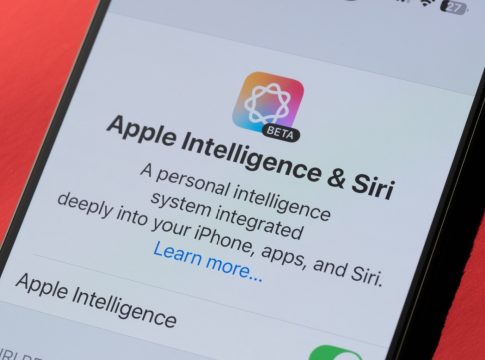Apple Struggles to Elevate Siri Amid AI Advancements
An Ambitious AI Overhaul Faces Hurdles
As Apple prepares for its annual event, anticipation runs high among tech enthusiasts. However, a report from the Financial Times (FT) suggests that investors might be in for disappointment, particularly concerning any substantial announcements related to AI advancements. The company’s flagship voice assistant, Siri, is reportedly struggling to keep pace with cutting-edge artificial intelligence technologies.
The Challenges of Large Language Models
In an age where conversational agents are evolving rapidly, Apple has set out on a quest to enhance Siri using large language models (LLMs) that facilitate more nuanced and interactive communication. Unlike competitors like OpenAI, which have successfully leveraged generative AI to refine their voice assistants, Apple appears to be finding the integration process challenging. Former employees revealed that attempts to upgrade Siri have led to a series of technical glitches, indicating significant obstacles in algorithm development.
A former Apple executive highlighted a key issue: the company is adhering to a method of "climbing the hill," which focuses on gradual improvements rather than a complete redesign. This incremental approach may have hindered Apple’s ability to create a more sophisticated and responsive voice assistant, leading to frustrations among both employees and users. The sentiment seems to echo the old adage: sometimes, starting from scratch is the best way to innovate.
The Broader Implications for Apple
The integration of AI into Siri is a vital part of Apple Intelligence, a suite of AI features introduced at last year’s Worldwide Developer Conference (WWDC). These updates aim not only to enhance user experience but also to catalyze hardware sales—a crucial aspect of Apple’s revenue model. As competitors like Microsoft and Google flaunt their rapid progress in AI, Apple’s upcoming showcase could highlight the gaps in its offerings.
Market analysts predict that the WWDC might lay bare how far behind Apple is in AI innovation, contrasting sharply with competitors that have made significant strides. Craig Moffett, a researcher at MoffettNathanson, emphasizes that Apple is likely to adopt a cautious stance, avoiding promises about features that are still in development.
Wider Business Challenges
Beyond AI, Apple faces a multitude of challenges. Increased tariffs pose threats to hardware profit margins, while pressure from political figures, including former President Donald Trump, calls into question Apple’s long-standing overseas production model. The company’s lucrative services division, which boasts an impressive gross profit margin of 74%, is also under scrutiny due to legal issues surrounding fees associated with the App Store and payments received from Google for its search engine.
As Apple navigates these hurdles, the future of Siri—and by extension, Apple’s AI ambitions—remains uncertain. With the tech industry rapidly evolving, the stakes are high for Apple to catch up and redefine its legacy in artificial intelligence.

Writes about personal finance, side hustles, gadgets, and tech innovation.
Bio: Priya specializes in making complex financial and tech topics easy to digest, with experience in fintech and consumer reviews.

